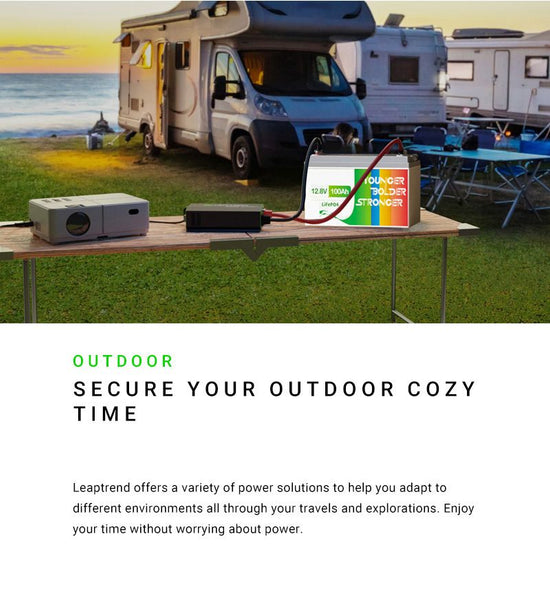RV Converter vs RV Inverter
When using household appliances and electronics to power a recreational vehicle (RV), two common devices are RV converters and RV inverters. Both devices convert DC power from your RV battery to AC power, but their functions and applications differ. In this article, we’ll explore the pros and cons of RV converters and RV inverters, and where each option is suitable.
RV converter
Advantages of RV converters
Compatibility: RV converters are designed to power specific devices that require a modified sine wave output. This includes a lot of old RV equipment and some consumer electronics.
Cost-effective: Converters are generally less expensive than inverters, making them a cost-effective option for RV owners on a budget.
Disadvantages of RV converters
Limited functionality: RV converters provide a modified sine wave output and may not be compatible with all modern electronics and appliances.
Power limitations: Converters have lower power ratings than inverters, limiting the number and type of devices they can power.

RV inverter
Advantages of RV inverters
Pure Sine Wave Output: The RV inverter provides pure sine wave output, compatible with most modern electronics and appliances.
Higher power ratings: Inverters often have higher power ratings, allowing them to power more devices at the same time.
Advanced features: Many RV inverters come with advanced features such as remote control, WiFi connectivity, and battery management systems.
RV inverter disadvantages
Higher Cost: RV inverters are generally more expensive than converters, reflecting their higher power ratings and advanced features.
Energy Efficiency: While inverters are efficient, they still draw power from your RV’s battery, which may shorten its lifespan.
Choose the device that suits your needs
When choosing an RV converter and RV inverter, consider the following factors:
Appliance Compatibility: If you plan to use modern electronics and appliances in your RV, an inverter with a pure sine wave output is preferred.
Power Requirements: If you need to power multiple power-hungry devices simultaneously, an inverter with a higher power rating is appropriate.
Budget considerations: If you're on a tight budget, a converter may be a more cost-effective option. However, inverters offer more features and compatibility.
RV converters and inverters play a vital role in powering your RV appliances and electronics. The choice between the two depends on your specific needs and budget. Converters are cost-effective and compatible with many older RV equipment, while inverters offer more features and are compatible with modern electronics. By considering factors such as device compatibility, power requirements, and budget, you can choose the right equipment for your RV.
























